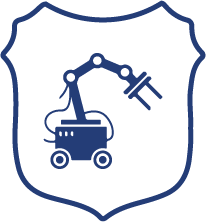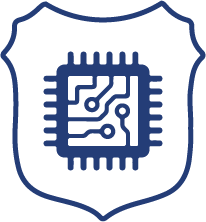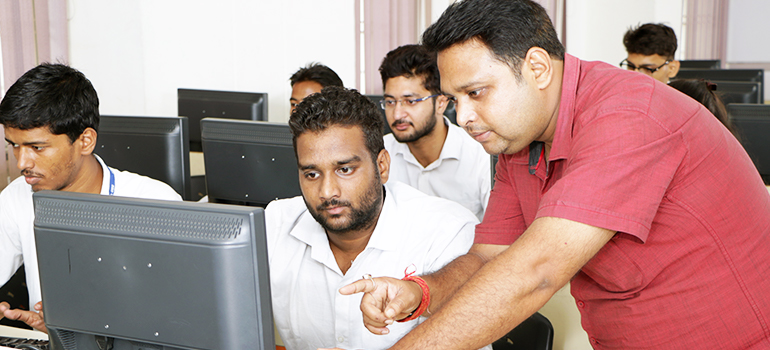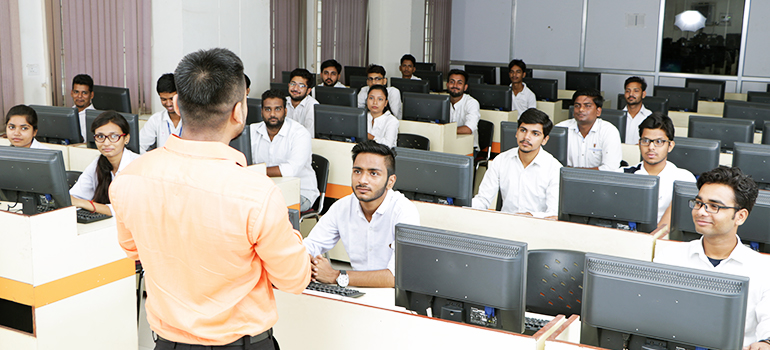B. Tech (Computer Science & Engineering)-Cloud Computing and Machine Learning in collaboration with IBM
Educational Objectives
The Program empowers students to prepare for cloud and machine learning careers in technical domains by building deep expertise through industry-recognized training. The course offers students with a comprehensive introduction to cloud computing and machine learning through concepts, hands-on labs, and assessments.
Opportunities for Cloud Computing and Machine Learning:
As we are getting more advanced and equipped with the concept of artificial intelligence, the society is in the dire need of individuals who can use their shrewd knowledge and technical skill-sets to apply to real-life problems and come up with evolved solutions. We have tried to list down some of the career opportunities from the ocean of the same:
- Machine Learning Engineers
- Data Engineer
- Data Scientists
- Deep Learning Engineer
- Technical Program Manager
Program Outcomes
- Engineering Knowledge: Apply the knowledge of mathematics, science, engineering fundamentals and an engineering specialization to the solution of complex engineering problems.
- Problem Analysis: Identify, formulate, review literature and analyze complex engineering problems reaching substantiated conclusions using first principles of mathematics, natural science and engineering sciences.
- Design / Development of Solutions: Design solutions for complex engineering problems and design system components or processes that meet the specified needs with appropriate consideration for the public health and safety and the cultural, societal and environmental considerations.
- Conduct Investigations of Complex problems: Use research-based knowledge and research methods including design of experiments, analysis and interpretation of data, and synthesis of the information to provide valid conclusions.
- Modern Tool Usage: Create, Select, and apply appropriate techniques, resources and modern engineering and IT tools including prediction and modeling to complex engineering activities with an understanding of the limitations.
- The Engineer and Society: Apply reasoning informed by the contextual knowledge to assess societal, health, safety, legal and cultural issues and the consequent responsibilities relevant to the professional engineering practice.
- Environment and Sustainability: Understand the impact of the professional engineering solutions in societal and environmental context and demonstrate the knowledge of, and need for sustainable development.
- Ethics: Apply ethical principles and commit to professional ethics and responsibilities and norms of the engineering practice.
- Individual and Team Work: Function effectively as an individual and as a member or leader in diverse teams and in multidisciplinary settings.
- Communication: Communicate effectively with the engineering community and with society at large. Be able to comprehend and write effective reports documentation. Make effective presentations, and give and receive clear instructions.
- Project management and finance: Demonstrate knowledge and understanding of engineering and management principles and apply these to one’s own work, as a member and leader in a team. Manage projects in multidisciplinary environments.
- Life-long learning: Recognize the need for, and have the preparation and ability to engage in independent and life-long learning in the broadest context of technological change.
Program Specific Outcomes
PSO1: Understand and develop computer programs in the areas related to algorithms, cloud computing, machine learning, and big data analytics by identifying, demonstrating and analyzing the knowledge of engineering in efficient design of computer-based systems of varying complexity.
PSO2: Applying algorithmic principles, innovative design and implementation skills to propose optimal solutions to complex problems by choosing a better platform of cloud computing and machine learning.
Syllabus
Engineering Courses
Labs
- Database Management System Lab
- Machine Learning Lab
- Operating System Lab
- Data Structures Lab
- Data Science with Python Lab
- Artificial Neural Network Lab
-
- Computer Networks Lab
- Natural Language Processing Lab
- Fuzzy Logic Lab













